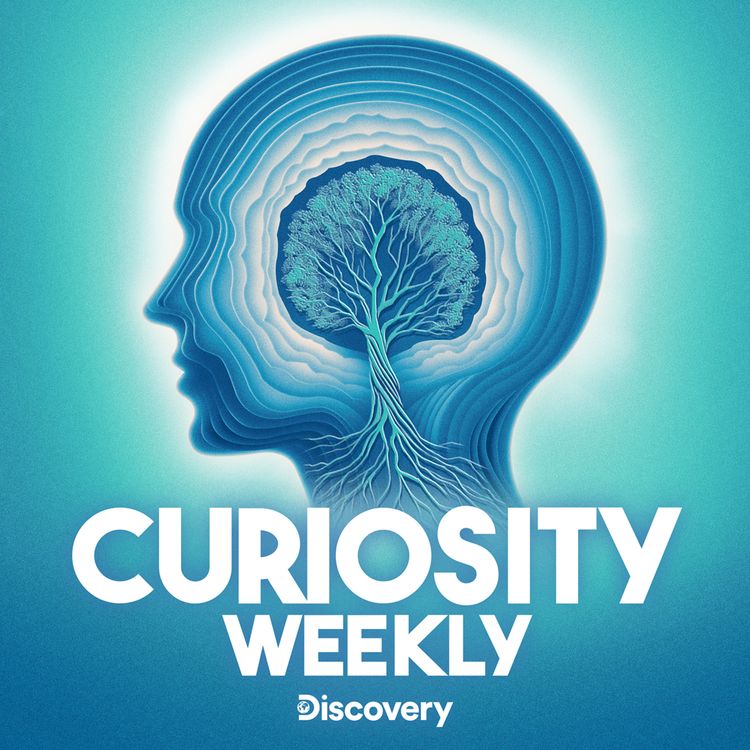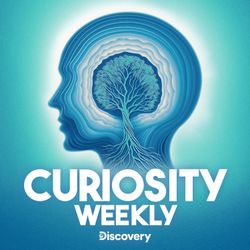Share

Curiosity Weekly
Remote Surgery, Isolated Neanderthals, Greenspace & ADHD
•
Today, you’ll learn about how surgeons operated on a pig from 5,000 miles away, a population of neanderthals that were isolated for 50,000 years, and why trees could be linked to lower risks of ADHD in kids.
Remote Surgery
- “Remote surgery performed on a pig 9,000 km away using a game controller.” by Michael Irving. 2024.
- “Teleoperated Magnetic Endoscopy: A Case Study and Perspective.” by Alexandre Mescot, et al. 2024.
Isolated Neanderthals
- “An ancient Neanderthal community was isolated for over 50,000 years.” Scimex. 2024.
- “Long genetic and social isolation in Neanderthals before their extinction.” by Ludovic Slimak, et al. 2024.
Greenspace & ADHD
- “Tree-covered neighborhoods linked to lower ADHD risk in children.” by Eric W. Dolan. 2024.
- “Lifelong greenspace exposure and ADHD in Polish children: Role of physical activity and perceived neighbourhood [sic] characteristics.” by Dorota Buczylowska, et al. 2024.
Follow Curiosity Daily on your favorite podcast app to get smarter with Calli and Nate — for free! Still curious? Get exclusive science shows, nature documentaries, and more real-life entertainment on discovery+! Go to https://discoveryplus.com/curiosity to start your 7-day free trial. discovery+ is currently only available for US subscribers.
More episodes
View all episodes

Tips For Pits: The Science of Body Odor
23:23|It’s not a stretch to say that everyone suffers from unwanted body odor from time to time. Whether it’s stress, exercise, or heat, there are plenty of reasons why we sweat and there is a lot to learn about our bodies from the odors they create. To learn more about the science of body odor, Dr. Samantha Yammine is joined by Dr. Chris Callewaert, aka Dr. Armpit. Before that, Sam also digs into a new skin patch that might help out our friends with peanut allergies. Then, she explores a new theory into how the Black Death pandemic was able to spread so easily way back in the 1300s. Link to Show Notes HERE Follow Curiosity Weekly on your favorite podcast app to get smarter with Dr. Samantha Yammine — for free! Still curious? Get science shows, nature documentaries, and more real-life entertainment on discovery+! Go to https://discoveryplus.com/curiosity to start your 7-day free trial. discovery+ is currently only available for US subscribers.
History Punished Scientists - Are We Doing the Same Thing?
26:35|It’s easy to think that every major scientific breakthrough in history was met with acceptance and enthusiastic fanfare, but that is not the case. Many modern scientific truths were discovered by researchers who were punished for their ideas at the time. To discuss this topic, Dr. Samantha Yammine is joined by Matt Kaplan, author of the book I Told You So: Scientists Who Are Ridiculed, Exiled, and Imprisoned For Being Right. Then, Sam takes a look into a new study that may have cracked the code on why women are more likely to experience symptoms of IBS. And, just in time for Valentine’s Day, she also explores the history and anthropology of kissing. Link to Show Notes HERE Follow Curiosity Weekly on your favorite podcast app to get smarter with Dr. Samantha Yammine — for free! Still curious? Get science shows, nature documentaries, and more real-life entertainment on discovery+! Go to https://discoveryplus.com/curiosity to start your 7-day free trial. discovery+ is currently only available for US subscribers.
Does Your Dog Actually Feel Guilt?
30:13|Exploring the science behind pet ownership is a more complicated process than you might think. This episode, Dr. Samantha Yammine is joined by the author of The Science of Pets, Jay Ingram. They talk about the relationship between animals and humans and how we may not always see eye to eye when it comes to interpreting certain behaviors. Sam also looks into the history of species variation in dogs and how human emotions make it difficult to decipher dog emotions. Puppy Bowl XXII simulcasts across Animal Planet, Discovery, TBS, TruTV, HBOMax, and Discovery on Sunday, February 8, 2026 at 2PM ET/11:00AM PT. Watch it after on HBOMax and Discovery+. Link to Show Notes HERE Follow Curiosity Weekly on your favorite podcast app to get smarter with Dr. Samantha Yammine — for free! Still curious? Get science shows, nature documentaries, and more real-life entertainment on discovery+! Go to https://discoveryplus.com/curiosity to start your 7-day free trial. discovery+ is currently only available for US subscribers.
Urban Ecosystems With The Rat Detective
23:31|We know that the health of the planet affects human health but what about the other way around? This episode, Dr. Samantha Yammine is joined by Dr. Kaylee Byers to discuss how human and animal health is interconnected, particularly in urban environments. Sam also investigates new research that looks into the largest spider colony in the world and the biology of addiction. Link to Show Notes HERE Follow Curiosity Weekly on your favorite podcast app to get smarter with Dr. Samantha Yammine — for free! Still curious? Get science shows, nature documentaries, and more real-life entertainment on discovery+! Go to https://discoveryplus.com/curiosity to start your 7-day free trial. discovery+ is currently only available for US subscribers.
The Biggest Animal Sanctuary in the World with Forrest Galante
26:58|There are always constraints when it comes to conservation. Finances, logistics, population dynamics, medicine, and general care all need to be considered when asking: how do we best care for our planet? This episode, Dr. Samantha Yammine is joined by Forrest Galante, a wildlife conservationist and biologist to discuss his new series Vantara: Sanctuary Stories, now streaming on HBOMax and Discovery+. Sam and Forrest talk about the peaks and valleys of modern conservation and how the animal sanctuary Vantara is unique in the way it cares for the hundreds of thousands of animals that live there. Sam also explores a new study that provides evidence that helping others slows cognitive decline and recent research on how elite performers reach the pinnacle of their fields. Link to Show Notes HERE Follow Curiosity Weekly on your favorite podcast app to get smarter with Dr. Samantha Yammine — for free! Still curious? Get science shows, nature documentaries, and more real-life entertainment on discovery+! Go to https://discoveryplus.com/curiosity to start your 7-day free trial. discovery+ is currently only available for US subscribers.
The End of the Universe
22:33|To understand how our universe might end, scientists often have to go back to the beginning. This episode of Curiosity Weekly, Dr. Samantha Yammine is joined by astrophysicist Dr. Katie Mack to discuss theoretical cosmology, astrophysics, and what scientists are thinking might happen to our universe in the distant future. Sam also explores a newly discovered fire amoeba and a recent study exploring how exercise slows cancer growth. Link to Show Notes HERE Follow Curiosity Weekly on your favorite podcast app to get smarter with Dr. Samantha Yammine — for free! Still curious? Get science shows, nature documentaries, and more real-life entertainment on discovery+! Go to https://discoveryplus.com/curiosity to start your 7-day free trial. discovery+ is currently only available for US subscribers.
Why Scientists Can’t Agree on Aging
27:36|It’s a new year which means many of us are focusing on resolutions designed to take better care of our bodies as we age. But, even those conducting research on healthy aging find it a complicated concept to define. To help navigate the topic, Dr. Samantha Yammine is joined by Dr. Paul Robbins, a professor and co-director of the Masonic Institute on the Biology of Aging and Metabolism at the University of Minnesota. Then, Sam investigates what researchers learned from studying the biology and lifestyle of a woman who lived to the age of 117 and how manipulating the mitochondria in a cell can prevent degeneration. Link to Show Notes HERE Follow Curiosity Weekly on your favorite podcast app to get smarter with Dr. Samantha Yammine — for free! Still curious? Get science shows, nature documentaries, and more real-life entertainment on discovery+! Go to https://discoveryplus.com/curiosity to start your 7-day free trial. discovery+ is currently only available for US subscribers.
Why Society Treats Allergies Like a Nothingburger
33:39|Allergies are estimated to affect upwards of 30% of people globally, so why are they so often swept under the rug? People in restaurants lie about their allergies, food labelling is difficult to understand, and those with the allergies are often forced to be their own advocate to avoid a potentially life-threatening medical situation. On this episode, senior producer Teresa Carey interviews allergist Dr. Samira Jeimy to discuss the day-to-day realities of allergies, new potential medications, and why better societal support is needed for those with severe allergies. Host Dr. Samantha Yammine also explores how multilingualism can slow brain aging and a new study that is trying to cleanse wine from the taste of wildfire smoke. Link to Show Notes HERE.Curiosity Weekly is off for the holidays! Tune in on January 7th for a new episode. Follow Curiosity Weekly on your favorite podcast app to get smarter with Dr. Samantha Yammine — for free! Still curious? Get science shows, nature documentaries, and more real-life entertainment on discovery+! Go to https://discoveryplus.com/curiosity to start your 7-day free trial. discovery+ is currently only available for US subscribers.
We Are Starting to Talk Like ChatGPT
30:21|Language has always evolved but it seems like technology has sped that process up to a staggering degree. Memes, algorithms, AI, and social media are altering the words we use and the way we use them. To speak more about the phenomenon, host Dr. Samantha Yammine is joined by Adam Aleksic, an etymologist and author of the book Algospeak. Sam also explores a new search engine that’s being called the Google of DNA and how a fungus once thought to be an Egyptian curse, might just have cancer-fighting properties. Link to Show Notes HERE Follow Curiosity Weekly on your favorite podcast app to get smarter with Dr. Samantha Yammine — for free! Still curious? Get science shows, nature documentaries, and more real-life entertainment on discovery+! Go to https://discoveryplus.com/curiosity to start your 7-day free trial. discovery+ is currently only available for US subscribers.